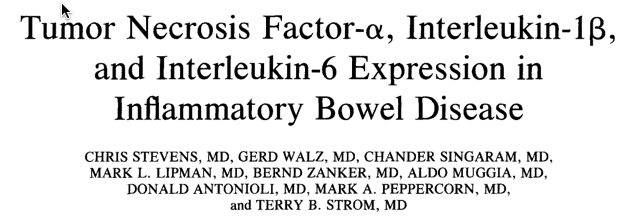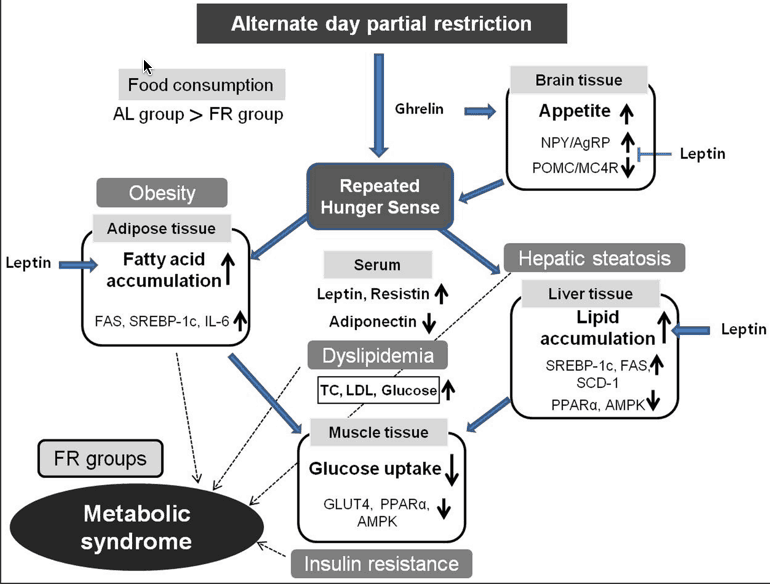
For years, I followed the low-carbohydrate, intermittent fasting model.
So I would eat low carbs, and I would also avoid carbs except for dinner. And I would fast off until 4 PM or 6 PM.
Gradually over the years, I acquired a potbelly that I was not happy with.
And I also began experiencing some strange health symptoms, including some gut inflammation and headaches.
The headaches started out every week or two, and gradually over the years became an almost daily occurrence.
And they were bad headaches too. They required my taking multiple ibuprofen and made me feel really lousy for a whole day or more.
My weight wasn’t bad, but it wasn’t great either.
I found that it was difficult to lose weight, and all too easy to gain weight.
Over the last two years, my research revealed a new way of eating, and I started on that.
And that’s why this particular study fascinates me so much.
Because it’s one of the studies along the way that convinced me to change from low-carb, and high-fat, to high carb, and low-fat. Go figure.
 They experimented with mice, and some of the mice were able to eat whatever they wanted.
They experimented with mice, and some of the mice were able to eat whatever they wanted.
The other mice were eating what they wanted every other day.
And on the days in between, they were only allowed to eat one-third of their calorie intake.
So they would eat what they wanted one day, and eat only one-third of that the next day.
This is called intermittent fasting.
There is evidence that intermittent fasting is healthy, and may (at least it was thought so) allow us to live longer.
At least, I thought that was true.
But the more I learn, the more I found that intermittent fasting results in high-stress hormones all the time; high cortisol, high adrenaline, and eventually messes with your thyroid.
It doesn’t affect EVERYONE by making them fatter and sicker at all times, but it does do this very frequently with MOST people.
And I found that intermittent fasting spills free fatty acids into the bloodstream, and these free fatty acids are a very quick way to develop insulin resistance and weight gain.
No wonder I had gained weight and developed a fatty liver
So in the study, they fasted mice, but this is important: the fasted mice did not eat any less than the regular mice.
They just ate more on the days they could eat what they wanted, and they were very hungry on the days where they were eating one-third of their typical intake.
Day 1 – eat anything
Day 2 – eat 1/3 of average intake
Day 3 – eat anything
and so forth.
Overall, though, the fasted mice ate as much as the regular mice.
But the fasted mice had a higher body weight; they had fatty liver disease; they were obese, and they had the equivalent of diabetes.
People today are being told how important leptin is. Leptin is generated by fat cells, and it signals the brain to be hungry.
These fasted mice had much higher leptin levels.
These higher leptin levels are often found in obese people too, not just obese mice.
Even worse, internal inflammation was very high with the fasted mice
inflammatory cytokines, TNF-α and IL-6, were increased under the obesity condition
TNF-a stands for “Tumor Necrosis Factor-a,” and IL-6 is another similar so-called cytokine.
These cytokines increase the chances of getting cancer.
They also open up the tight junctions in the cells lining the gut.
Resulting in chronic gut inflammation.
This can turn into Crohn’s disease or IBS, or it can simply spill toxins, bacteria, and endotoxins from the gut into the entire body, poisoning all the cells and creating a huge burden on the liver.
This is why we get fatty liver disease – our poor livers have to try to detoxify this load of what is essentially raw sewage pouring out of the gut.
 Tumor necrosis factor and interleukin are exactly the chemicals that vastly increased in the mice that had fasted.
Tumor necrosis factor and interleukin are exactly the chemicals that vastly increased in the mice that had fasted.
Remember, these fasting mice were doing what so many human beings do.
They were basically doing the equivalent of skipping breakfast and skipping lunch in order to lose weight.
This is the perfect storm of metabolic problems.
Being fat, having high cholesterol, having high triglycerides, having diabetes, high blood pressure, you name it.
All you have to do is skip a bunch of meals, chronically raise your cortisol levels, and end up like these obese mice. Simply by being hungry in an effort to lose weight.
Here is the result for the mice, graphically presented:
 This is not a pretty picture.
This is not a pretty picture.
It leads to all the problems that many of us have today.
Being overweight. Having a fatty liver. Having diabetes. All kinds of problems that are not on this chart, including prostate inflammation, and cancer. Not a pretty picture at all.
It’s why I no longer do intermittent fasting. When I wake up, I eat breakfast, later I eat lunch, then a dinner, and I may even have some snacks in between.
I’m doing really well now; my metabolism is recovering from the intermittent fasting adventure, and I’m encouraging you to consider this test, among others.
What to do now
I would suggest strongly avoiding intermittent fasting. Avoid skipping meals. Avoid being hungry all the time.
That’s the very clear take away from this study and many others.
Citations
Repeated Sense of Hunger Leads to the Development of Visceral Obesity and Metabolic Syndrome in a Mouse Model
http://journals.plos.org/plosone/article?id=10.1371/journal.pone.0098276
Tumor Necrosis Factor-a, Interleukin- 113, and Interleukin-6 Expression in Inflammatory Bowel Disease
https://www.researchgate.net/profile/Terry_Strom/publication/226241791_Tumor_necrosis_factor-_interleukin-1_and_interleukin-6_expression_in_inflammatory_bowel_disease/links/0912f504120f736c0f000000.pdf
Click for more information on Skipping Meals, for information on Diet & Exercise, or for more on Tumor Necrosis.
